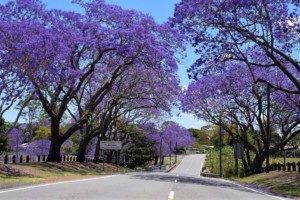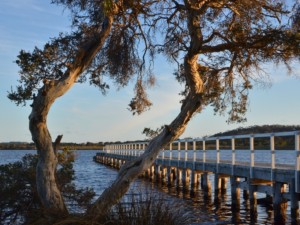Good news in tourism June 14 – 20, 2020
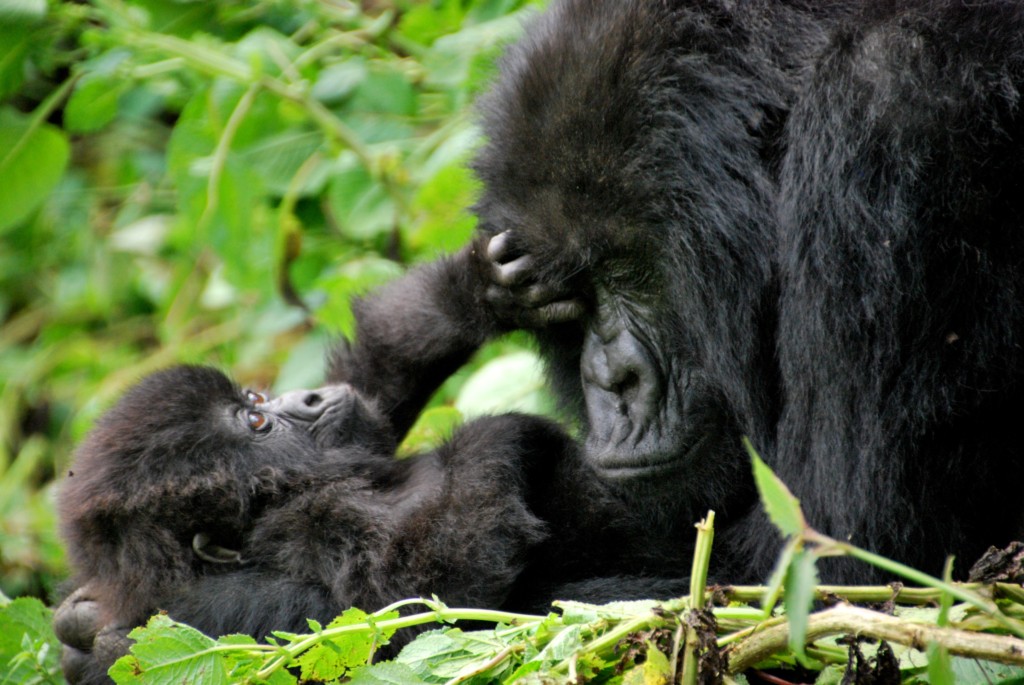
… because it’s everyone’s business!
Published every Sunday, “Good news in tourism” is the perfect pick-me-up for the start of a new week in travel & tourism.
This week in “Good news …”:
- Community
- Parks
- Wildlife
- Aviation
- Friends indeed
- Odds & ends
It’s “Good Tourism”. And go!
Important “GT” news first:
On Thursday your correspondent questioned whether or not the new Future of Tourism Coalition had undervalued the role of destination communities in the third of their 13 “guiding principles”. He also cheekily suggested that the whole thing was a “public relations pyramid scheme” and an “exercise in tourism industry virtue signalling”. Fair? Maybe. Maybe not. It was a self-declared “hot take”, after all. And irreverence is fun. Let “GT” know what you think.
“GT” Friends Richard Shepard and Shane K Beary weighed in with comments, as did Jonathan Tourtellot of the Destination Stewardship Center. Don’t be shy. Join in. As “GT” strives for substantive diversity, your correspondent will always publish a polar opposite view, so long as it is legal, topical, decent, and in good faith.
Quick housekeeping: On Thursday a “GT” Friend alerted your correspondent to a serious problem with “GT’” commenting functionality. This has been rectified. So if you have ever tried to comment on a “GT” post but were rudely “Blocked as suspected bot”, sorry! Please try again. In the spirit of diversity, everyone is welcome to comment … unless you are indeed an insentient bot or sock puppet, in which case: 01000111 01101111 00100000 01100001 01110111 01100001 01111001 00100001
In other “GT” news, Khiri Reach, the charitable arm of “GT” Partner Khiri Travel, has set up a fund to support freelance tour guides. 100% of the money raised goes to guides, according to Khiri Reach boss Nia Klatte, who said: “We want to support a group of people who are among the very hardest hit by the current crisis: our guides, who are all freelance workers. Unfortunately, in Southeast Asia, the government safety nets are extremely minimal if they exist at all for freelancers. And while some domestic tourism is coming back, it will take months or years for tourism activities to return to ‘normal’.”
“GT” Insight Partner SUNx — Strong Universal Network has launched a music video (embedded below) as part of its #BendOurTrend campaign. SUN chief Geoffrey Lipman said: “The haunting song was composed and sung for us by Liona Boyd, world-class guitarist and friend of our inspiration, the late Maurice Strong. Please watch and listen. If you like it as much as we do, please share it with your networks.”
Community
If one teenager can push adults’ buttons on global climate change, then a team of primary school children with “love for their community and a sense of belonging” can attract interest in local tourism. That’s what team “Aluxes to the rescue” has done for the tourist attractions of Tekax, Mexico.
Before they open their doors to guests, tourism stakeholders in the eastern Dooars region of India very wisely want to ensure locals are prepared to see visitors again. They cited an incident in Darjeeling in which youths fearful of coronavirus confronted tourists and made them leave. The Dooars are the alluvial floodplains in the states of Assam and West Bengal, northeastern India.
Rachel Stratton of the Gold River Economic Development Committee said small communities across Canada shared the same challenge: To recognise that the retail environment was changing and look for innovative ways to adapt; to attract new residents, businesses, industries, retirees, and visitors, and to keep those already there.
Kalani Kaanaana, director of cultural affairs & natural resources at the Hawaii Tourism Authority, USA, reckons: “If we can move away from the mass, sort of industrial way tourism has been done and get into a more community and connected type of tourism, I think that’s where Hawaii can really shine.”
The importance of good partnerships
Many commentators would like to see previously overcrowded destinations recover from the COVID-19 depression with a focus on quality rather than quantity. That would be nice. However, logic indicates that some or many extant tourism stakeholders will likely go out of business should this happen. Don’t let one of those be you. Stay as positive as you can be. And seek out good partnerships with those who make you their priority.
“GT” is a good partner. Ask about partnership opportunities.
Here’s a great one: “GT” is packaging a Good Partner button (125 x 125 pixels) for a whole year with two sponsored posts to be used any time during that period for … 😲… USD 365 … 😅 … That’s chea- inexpensive! … 😃… It’s a great deal. And it’s yours if you want it!
Sponsored posts can be about your news, event, place or product without the editorial constraints of a “GT” Insight. And as a “GT” Partner you also enjoy all the “Good news” advantages of “GT” Partnership, including a link to your favourite tourism-related charitable cause under the “Friends indeed” subheading.
More information about “GT” Partnership | Buy the “Good Partner” button now.
Parks
Sri Lanka reopened national parks on Monday (June 15) albeit with strict health guidelines including e‑ticketing to reduce physical contact, and a limit on the number of vehicles allowed in to prevent overcrowding. There is also a call for revised protocols to “improve visitor behavior”.
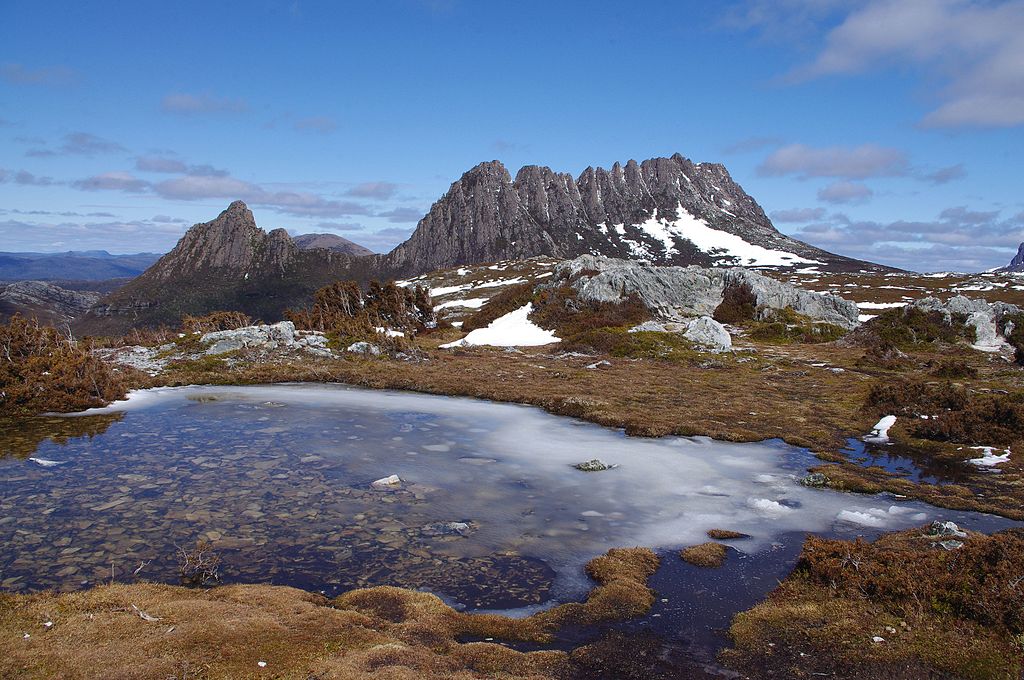
The new visitor centre for the Cradle Mountain Gateway in Tasmania, Australia opened. It is part of state and federal governments’ combined AUD 86.8 million (USD 59.5 million) investment in Cradle Mountain, which is one of Tasmania’s biggest tourism draws and part of the Tasmanian Wilderness World Heritage Area.
The government of Queensland, Australia is adding AUD 8.9 million (USD 6.1 million) to the AUD 45 million (USD 30.8 million) program meant to “revitalise infrastructure in the state’s most popular national parks” and support tourism and local jobs.
Iran’s “Mountain of Sun” cave, Katale-Khor, is set to be at the centre of new tourism development. Zanjan provincial tourism chief Amir Arjmand said the cave doesn’t attract many visitors due to its remoteness and lack of facilities. He has asked the private sector to collaborate with the government on investing in the area.
Tourism officials in Muskegon County, Michigan, USA are boosting the area’s beaches, parks, and other natural resources to make up for the cancellation of summer events. In an attempt to tap road trippers, the tourism office has installed billboards on interstate highways to promote state and county parks and Lake Michigan beaches.
Wildlife
Rwanda eased tourism restrictions Wednesday (June 17) allowing domestic and foreign tourists to visit its star attraction: mountain gorillas. The Rwanda Development Board announced that gorilla permits are now available for “as little as” USD 200 for Rwandans and East African Community (EAC) nationals who reside in Rwanda, and USD 500 for other foreign residents. International tourists will continue to pay USD 1,500.
In Vietnam, volunteers have spent three years guarding a troupe of 60 endangered grey-shanked douc langurs in Quang Nam Province. Now local authorities are developing a conservation plan with a budget of VND 100 billion (USD 4.34 million) to restore natural habitat for the primates. “Another possible option is that locals donate their forest land and later become shareholders of a cooperative eco-tourism business model.” The International Union for Conservation of Nature lists the langurs among the 25 most threatened primate species in the world.
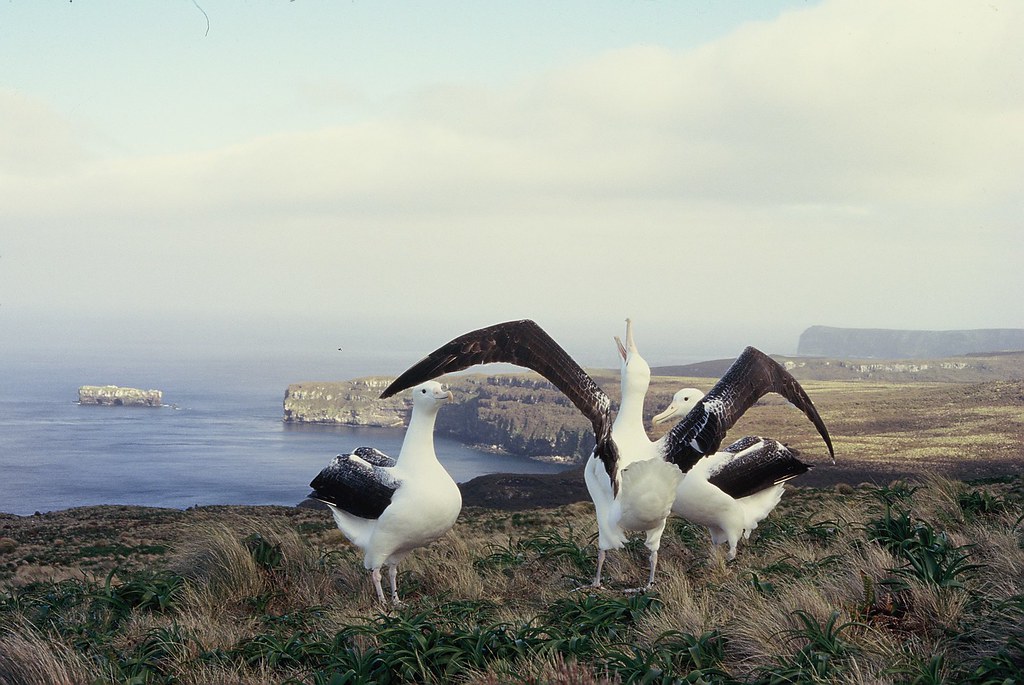
Overseas media coverage of the royal albatross colony on New Zealand’s Otago Peninsula is expected to help ecotourism recover there. Tourism New Zealand has valued the public relations the colony received at more than NZD 17 million (USD 10.9 million). Herewith another USD 0.02 worth courtesy of “GT”. You’re welcome, Royal Albatross Centre!
Follow, flatter, finance
To skip, simply scroll down to the next subheading …
If you like “GT” and you don’t want to miss a thing, then subscribe to “GT’s” weekly e‑news — it’s free — and follow “GT’s” various socials, such as its LinkedIn page.
Join the conversation. Within reason — legality, topicality, decency, and good faith — all points of view are welcome … especially flattering ones, of course! 😎
And if you find “GT” inspiring, interesting, somewhat amusing, or at least different — because diversity is good, yeah? — then surely it’s worth a little something to you.
It would mean a big something to “GT”!
Thank you very much to those who have donated. 😍
Aviation
Those who engage in speculation over whether tourism will become flightless must have forgotten that their fellow Homo sapiens are super-smart!
Sweden’s Heart Aerospace claims it will have its ES-19 electric airliner certified for commercial flights by 2025. With a capacity of 19 passengers and an operating range of 400 km, the aircraft is seen as a contender to service international routes over the Gulf of Barthia between Finland and Sweden.
Pipistrel’s fuel-powered four-seater Panthera will also be available in hybrid and all-electric versions soon. As noted in “Good news …” last week, the Slovenia-based manufacturer’s two-seater Velis Electro electric aircraft was the first to receive EASA type certificate. Pipistrel claims the Velis Electro costs only USD 1 an hour to fly.
Hydrogen’s energy density makes it a better proposition for zero-carbon flight than electricity, according to ZeroAvia boss Val Miftakhov. ZeroAvia has a heavy bet on H.
Friends indeed
As international travel bans lengthen, belts get tighter in places previously reliant on foreign tourism … Here are fundraisers worth considering because “GT” Friends are involved. (This content has appeared in “Good news in tourism” before, so enjoy it again or scroll down to the next subheading to skip.)
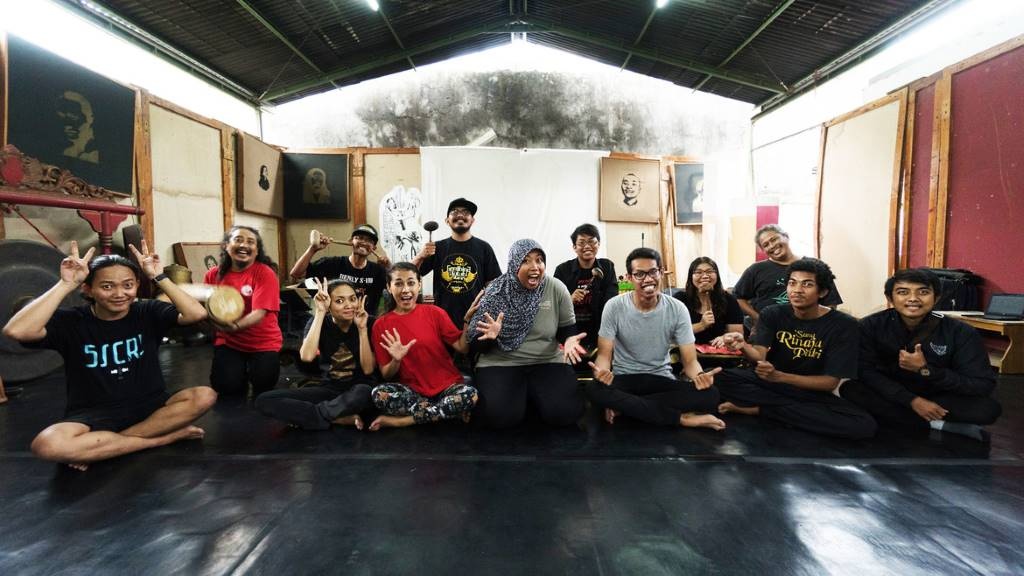
Khiri Reach, the charitable arm of “GT” Partner Khiri Travel, has set up a fund to support freelance tour guides. 100% of the money raised goes to guides, according to Khiri Reach boss Nia Klatte, who said: “We want to support a group of people who are among the very hardest hit by the current crisis: our guides, who are all freelance workers. Unfortunately, in Southeast Asia, the government safety nets are extremely minimal if they exist at all for freelancers. And while some domestic tourism is coming back, it will take months or years for tourism activities to return to ‘normal’.”
“GT” Insight Partner Second Look Worldwide is endorsing a worthy fundraiser organised by “GT” Friend James Nadiope, who said: “Since Uganda went into quarantine with total lockdown followed by curfew many families where we work go empty stomach with no food to eat. I would like to appeal to all well-wishers for financial donations to help these vulnerable families.” [Callback: In January, Mr Nadiope contributed a “GT” Insight into “How bees, trees, & tourism reduce human-wildlife conflict in Uganda”.]
The temporary closure of Cardamom Tented Camp due to the COVID-19 shutdown has meant that forest patrols by Wildlife Alliance rangers in Botum Sakor National Park in southwest Cambodia may have to be suspended. The rangers’ equipment, food and wages are provided in entirety by the Golden Triangle Asian Elephant Foundation (GTAEF) and Cardamom both of which depend on tourism. And there is no tourism. An emergency fundraising page to keep rangers employed and adequately supplied is live … and worthy. [“GT” Friends Willem Niemeijer and John Roberts are associated with the fundraiser via Cardamom and GTAEF respectively.]
The expression “an elephant in the room” means an uncomfortable truth we cannot ignore. With tourism cash flows stemmed, many Asian elephants and their mahouts in Thailand and elsewhere are in deep trouble. “GT” Friend Hollis Burbank-Hammarlund of Work for Wild Life International wrote about why that’s the case and how we can help.
Not a fundraiser as such, but an idea for accommodation providers: “GT” Friend Rachel Sherwood is organising well-deserved holidays for healthcare workers at the front lines of the coronavirus COVID-19 fight. Operation Recuperation is collecting pledges from accommodation providers and second home owners from all over the world.
Odds & ends
Good news bits ‘n pieces that don’t easily fit into this week’s arbitrary clusters:
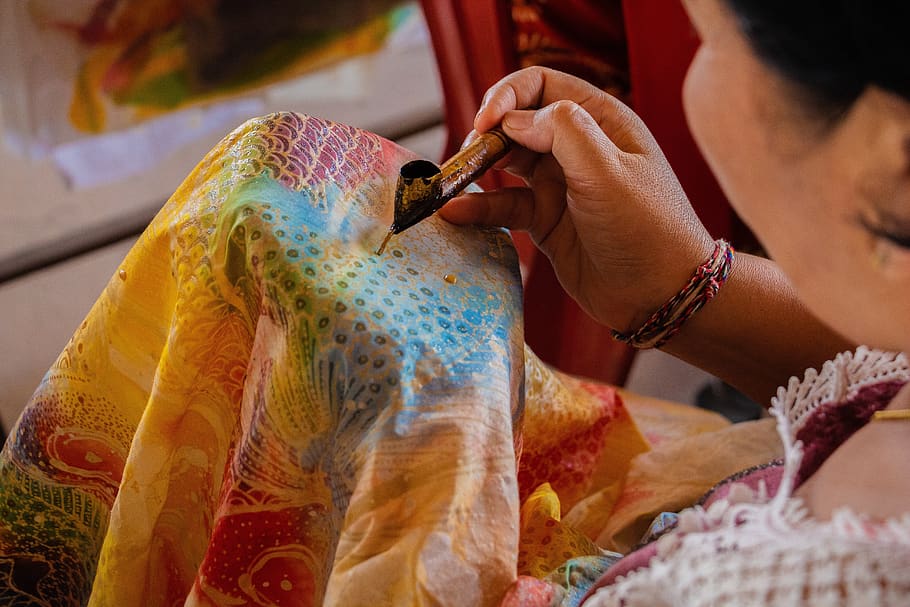
Indonesia’s deputy tourism & creative economy minister Angela Tanoesoedibjo reckons the social investment community can “encourage the development of the tourism sector, the local creative economy, and further develop the business capacity of [micro‑, small‑, and medium-sized enterprises]”. Social investment includes crowdfunding, philanthropy, public-private partnership, and “social-preneurship”.
In the Mediterranean province of Antalya on Friday, Turkey’s Culture & Tourism Ministry launched its Safe Tourism Certification Program. Over two days foreign ambassadors and foreign correspondents experienced measures implemented against coronavirus by Turkish tourism stakeholders. They saw for themselves precautions taken by airlines, airports, hotels, beaches, pools, and other tourist attractions.
Kerala Tourism will aggressively promote short-haul tours among domestic tourists from second-tier cities in India’s south, including Bengaluru, Mangaluru, Mysuru, Coimbatore and Madurai. Another campaign will promote the state’s responsible tourism products to Keralan locals.
Cherokee Nation announced a phased reopening of its cultural tourism sites in Oklahoma, USA, from July 15. There would be physical distancing, restricted visitor numbers, and the mandatory use of masks.
Good news: The short answer to The Guardian’s long article entitled “The end of tourism?” is “No”. (Why did tourism professionals feel the need to share the article with each other on the socials as if it had something new and insightful in it?)
No, it is not the end of tourism. Tourism will survive. There will be some consolidation, sure, as big fish eat little fish. But nippy fish will wear down lumbering fish, and bright fish will outsmart dull fish. And every fish needs good partners.
And “GT” will thrive!
Stay healthy, smile, and have a good week!
Featured image (top of post): Mother and baby mountain gorillas, Volcanoes National Park, Rwanda. Image by Carine06 (CC BY-SA 2.0) via Wikimedia.
Donations, diversity, disclaimers
To help your correspondent keep his energy-efficient lights on, please consider a private one-off gift or ongoing donation. THANK YOU to those who have! <3
Thank you very much to those who have donated. 😍
You are a tourism stakeholder — yes, YOU! — so what’s your view? Do you disagree with anything you have read on “GT”? Join the conversation. Comment below or share your “Good Tourism” Insights. Diversity of thought is welcome on The “Good Tourism” Blog. And you will be supporting an independent publisher with your original content.
Disclaimer 1: It is “GT’s” policy to fully disclose partner/sponsor content. If an item is not disclosed as partner or sponsor-related then it will have caught “GT’s” attention by some other more organic means. Partner with “GT”. You know you want to.
Disclaimer 2: None of the stories linked from this week’s post have been fact-checked by “GT”. All terminology used here is as the linked sources used it according to the knowledge and assumptions they have about it. Please comment below if you know there has been buzzword-washing or blatant nonsense relayed here, but be nice about it as the linked sources might get offended. (“GT” won’t.) And as for “GT” bringing it to your attention so that you might be the one to set the record straight, you are welcome! 🙂



